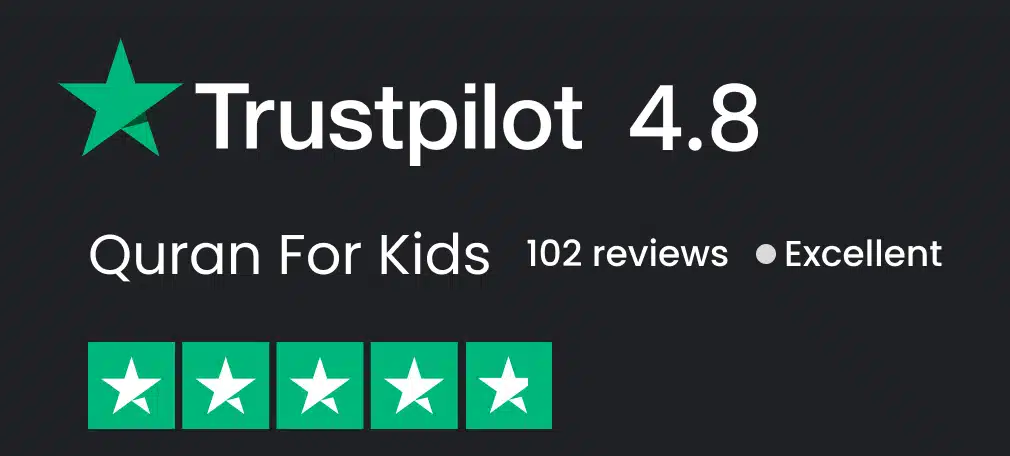In our life, we are bound to fulfil two types of Haqooq; 1) Haqooq ALLAH 2) Haqooq ul Ibad. Both of these haqooqs keep great importance in Muslim life. In this blog, we will discuss a list of Haqooq ul ibad, their importance and types.
Categories of Huqooq in Islam
Haqooq Allah VS Haqooq ul Ibad
What is Haqooq ALLAH?
Islam isn’t all about just praying and fasting (Huqooq ul Allah). It’s also about how we treat each other (Haqooq ul Ibad). Being good to others isn’t just the right thing to do, it helps us grow as people. It’s like a compass pointing us towards kindness, fairness, and respect in all our relationships.
Allah may forgive His rights due to us (except shirk) but He does not forgive the rights of His people that we owe to them (until the person forgives us)
Al-Qurtubi said in his book al-Jaami‘ li Ahkaam al-Qur’an: If the sin is one that wrongs other people, then repentance from it cannot be valid unless he also restores their rights and makes things right, whether it is to do with something concrete or an intangible matter
List of Haqooq ALLAH
- List of Huqooq ul Allah (Allah’s Rights over Us) Believes in the faithfulness of Allah (Tawheed).
- There is no one worthy of worship except Allah.
- Beseech Him only.
- Faith in all the Messengers of Allah (from Adam (AS) to Muhammad (SAW)).
- Faith in all His holy books (the Qur’an is the last book of Allah).
- Faith in Angeles.
- Faith in the Resurrection and Day of Judgement
- Believing in Qadal (destiny)
- 7) Prayer (sala)
- 8), Fasting
- 9) Performing Hajj (if physically and financially stable)
- Zakat (charity) is the only action that can be classified as becoming Allah and the right of your fellow citizens. Since Allah is the ultimate owner of everything, including our wealth, He asks us to spend money in His ways, which is His right.
- It is the right of our poor relatives, communities and people to spend money on it. This is their right and we are not doing them any favours.
Haqooq Ul Ibad Meaning
Haqooq Ul Ibaad is the duty we owe to humanity and there are rights of every soul on another, rights of human beings. Allah Almighty has provided guidance to mankind about human beings. A true Muslim is always concerned with the rights of human beings particularly the right of Allah Almighty.
List of exclusive rights of Muslims over other Muslims.
1) Respond to his Salam.
2) Visit a sick Muslim brother.
3) Attending the funeral of a Muslim brother.
4) Accept his invitation.
5) If he wants advice, give it.
6) If he sneezes, praise Allah in response.
Basis of Human Rights in Islam: Haqooq ul Ibad – A Universal Message
The principles of Haqooq ul Ibad go beyond faith affiliations to create a model for a society that is truly just for all.
It says every human being is of inherent dignity — no matter what they believe or where they come from.
That resonates with universal human rights and makes it a timeless framework and today’s expression of what “civil society is: a world without war.”
List of Haqooq ul Ibad that We Owe to Each Other Regardless of Religion
| Right | Description | Importance | Examples of Respecting This Right |
| Right to Life | Islam affirms the sanctity of human life, except in specific circumstances. | Promotes peace and protects individuals from harm. | Opposing unjust wars, providing safe havens, advocating for self-defense. |
| Right to Dignity and Respect | Every person deserves to be treated with respect, regardless of their background. | Recognizes inherent worth and fosters inclusivity. | Avoiding prejudice, treating everyone with courtesy, valuing diverse perspectives. |
| Right to Justice and Fairness | Equal access to justice and fair treatment under the law is emphasized. | Creates a just and equitable society. | Advocating for the oppressed, upholding legal systems, speaking out against discrimination. |
| Right to Freedom of Belief and Expression | Individuals have the right to choose and express their beliefs freely, within safe boundaries. | Encourages intellectual growth and open dialogue. | Respecting diverse faiths, engaging in respectful conversations, avoiding hate speech. |
| Right to Education and Knowledge | Seeking knowledge and education is encouraged. | Empowers individuals and fosters intellectual development. | Providing access to quality education, encouraging lifelong learning, supporting educational initiatives. |
| Right to Privacy and Security | Personal privacy and the sanctity of homes are recognized. | Protects individuals from intrusion and ensures safety. | Avoiding eavesdropping, respecting personal space, ensuring secure living conditions. |
| Right to Basic Necessities | Access to food, shelter, and clothing is essential for survival. | Promotes human dignity and alleviates suffering. | Helping those in need, sharing resources, advocating for economic justice. |
| Right to Livelihood and Decent Work | Everyone has the right to earn a decent living through honest work. | Encourages self-sufficiency and fair treatment. | Opposing exploitation, advocating for fair wages, providing opportunities for employment. |
| Right to a Healthy and environmental | Protecting the environment for present and future generations is crucial. | Promotes sustainability and protects natural resources. | Practicing mindful consumption, reducing pollution, advocating for environmental protection. |
List of Huqooq ul Ibad vs. Huqooq ul Allah: A Comparative Table
| Category | Huqooq ul Ibad (Rights of Fellow Beings) | Huqooq ul Allah (Rights of Allah) |
| Focus | Obligations and responsibilities towards other human beings | Duties and devotion owed to Allah |
| Examples | – Treating others with respect and fairness | – Performing the five pillars of Islam (prayer, fasting, charity, etc.) |
| Importance | Builds a just and harmonious society, reflects compassion and care | Strengthens faith, demonstrates gratitude to Allah |
| Consequences of Neglecting | Harms others, leads to injustice and conflict | Displeases Allah, weakens faith and spiritual connection |
| Examples of Rights: | – Parents: Obedience, care, and support | – Worship: Declaring and living the Oneness of Allah |
| Overall Message | Upholding the dignity and rights of all human beings | Deepening faith and servitude to Allah |
Haqooq ul Ibad in the Quran and Hadith
The Quran and Hadith are divine repositories of wisdom, offering invaluable guidance on upholding Haqooq ul Ibad.
- “And fulfil the covenant of Allah after you have made it (binding upon yourselves), and do not break your oaths after having established them, and you have made Allah witness over you. Indeed, Allah knows what you do.” (Quran, Surah An-Nahl, verse 91)
- Abu Hurairah (May Allah be pleased with him) reported:
Messenger of Allah (ﷺ) said, “The believers who show the most perfect Faith are those who have the best behaviour, and the best of you are those who are the best to their wives”. [At-Tirmidhi, who categorized it as Hadith Hasan Sahih].Riyad as-Salihin 278
These verses and narrations highlight the path towards fulfilling Haqooq ul Ibad. They remind us that our words and actions carry weight and that true faith lies in the kindness and compassion we show to others.
Amar Bil Maroof and Nahi Anil Munkar: Enjoining Good and Forbidding Evil
Islam emphasizes the importance of actively promoting good and discouraging evil (Amar Bil Maroof and Nahi Anil Munkar).
We should not just do this for our own benefit either. It is an Islamic obligation to preach against injustice; defend the oppressed, and fight against cruelty.
A Tapestry of Specific Rights: Weaving Relationships with Care
Relationships are threaded through shared responsibilities. Within families, friends, and communities, our bonds are strengthened as each individual right is respected.
Children care for elders in their final years as elders once cared for them in their earliest.
Partners support each other through life’s fluctuating seasons, preserving dignity and compassion through hardship and ease.
Leaders safeguard civilians while civilians’ loyalty sustains the common good. Through upholding the rights of all, our diverse social fabrics weave together in strength, justice, and mercy.
Let’s explore some prominent examples:
Rights of Parents
Islam emphasizes showing deep reverence and appreciation for parents, acknowledging their profound sacrifices and ensuring their wellbeing. Fulfilling parental rights is not merely an obligation, but an expression of profound gratitude and a source of blessings in this life and the hereafter. There are several pivotal aspects of parental rights:
Obedience and Esteem
- Relate to parents with compassion and understanding.
- Recognize their counsel and wisdom.
- Engage respectfully without causing anguish or distress.
Support and Care
- Provide needed physical and emotional aid as parents age.
- Give them your time.
- Address health concerns and requirements.
- Ensure overall comfort and satisfaction.
- Recite Dua for the mercy upon them
.” رَّبِّ ارْحَمْهُمَا كَمَا رَبَّيَانِي صَغِيرًا
My Lord, have mercy upon them both as they brought me up [when I was] small
Financial Assistance
- The duty to offer monetary help should it be required.
- Guarantee access to basic necessities for a dignified life.
- Afford their expense including medicines and health.
Maintaining Family Bonds
- Cultivate a strong relationship despite busy schedules.
- Visit parents regularly.
- Engage in meaningful discussions to fulfil emotional needs.
Honouring their Legacy
- Preserve parents’ memory and legacy.
- Show kindness to their relatives
- Keep their remembrance alive.
- Uphold their values even after their death.
- Give Sadqa on their behalf.
Rights of Children: Nurturing Seeds of Love and Care
Just as parents have rights, children have specific rights within Islam that nurture their well-being and development. We must fulfil these rights and ensure they grow up in a loving and supportive environment, reaching their full potential.
Here are some key aspects of children’s rights:
Love and Affection
- GIve them a good name.
- Express affection through words and actions.
- Provide emotional support for their well-being.
- Create an environment where they feel cherished.
Nurturing and Education
- Give them Islamic knowledge.
- Give them mentorship.
- Highlight their positive skill and motivate them to improve where they lack.
- Ensure physical and emotional care.
- Facilitate access to quality education.
- Foster the development of their talents and skills.
Fair Treatment and Justice
- Treat all children equally.
- Avoid favoritism or discrimination.
- Create a safe and protected environment.
Freedom of Expression and Guidance
- Respect children’s opinions.
- Encourage open expression.
- Provide gentle guidance for independent thinking.
Positive Role Models
- Demonstrate honesty and compassion.
- Exhibit responsible behavior.
- Being a positive role model for emulation.
Rights of husband on wife
- The wife should safeguard her chastity and his wealth
- She should not divulge her husband’s secret,
- When the husband is desirous of her, she should oblige,
- She should not invite any person if her husband disapproves that.
- She should not go out without his permission (of course emergency is an exception).
- She should give the best upbringing to her children.
- She should respect and love him, respect the husband’s relatives and friends, and forget and forgive the husband’s faults.
- Never insult or humiliate the husband and curse him
- Do not try to find fault in him, do not be suspicious about him and never overburden him with materialistic demands if he cannot meet them. Etc.)
Rights of WIfe on Husband
According to the teachings of Islam, a wife has many rights over her Husband. They include
- The financial maintenance of the wife – women’s place of living, sustenance, health care, clothing etc are all the responsibility of the man
- The Husband should pay her “Mehr”,
- He Should not force her to work to earn a livelihood, it is the prime responsibility of a husband in Islam.
- Treat her with love & affection
- Do not divulge her secrets
- Respect her relatives
- Help her in household work and spend time with them, always smile and remain happy when you are with the wife
- Husband should forget and forgive the faults of his wife
- Never insult or humiliate your wife
- Never curse the wife
- Do not try to find fault in her
- Do not be suspicious about her and never overburden her with services to you and especially services of your relatives i.e. her in-laws
- He must Earn legitimate Income to feed wife and children etc.
Rights of Neighbors
Because our neighbours encircle our lives, the threads of interaction weave a shared existence with a direct bearing on our happiness. In Islam, showing proper respect for neighbours and having some regard for their convenience are like the warp and woof of life. Here are a few of neighbourly rights.
Kindness and Respect
- Treat your neighbours with kindness, politeness, and consideration, which are basic principles. A warm smile, a friendly greeting, and assistance build a positive atmosphere of mutual respect.
- Gossiping about or finding fault of your neighbours is worse than slick-tongued villainy. Respect their dignity and confidentiality, and the bonds of trust and closeness will still strengthen.
- Support and Assistance: Offering help in time of need, whether it’s by doing some work or giving emotional support, builds up cohesion and promotes interaction between people.
- It’s also a matter of respect and concern for one’s fellow man to do what’s necessary to keep your neighbours from danger.
Responsible Conduct
- Not making too much noise, not being too much of a nuisance and respecting common areas like driveways or backyards are the essentials of living harmoniously.
- Resolving potential conflicts by open and frank communication, more understanding and a willingness to find solutions is needed to prevent worse snowballing from minor disagreements.
Beyond the Individual
- Doing things that benefit the overall good of the community, however, such as joining in on neighborhood activities, improving the environment and cleaning up rubbish, are good for everybody.
- Forming a sense of community by running social gatherings, festivals, and cultural evenings fosters interethnic ties and joins people together to create a social fabric of unity and harmony.
حَدَّثَنَا سُلَيْمَانُ بْنُ دَاوُدَ أَبُو الرَّبِيعِ، قَالَ: حَدَّثَنَا إِسْمَاعِيلُ بْنُ جَعْفَرٍ، قَالَ: حَدَّثَنَا الْعَلاَءُ بْنُ عَبْدِ الرَّحْمَنِ، عَنْ أَبِيهِ، عَنْ أَبِي هُرَيْرَةَ، أَنَّ رَسُولَ اللهِ صلى الله عليه وسلم قَالَ: لاَ يَدْخُلُ الْجَنَّةَ مَنْ لاَ يَأْمَنُ جَارُهُ بَوَائِقَهُ.
Abu Hurayra reported that the Messenger of Allah, may Allah bless him and grant him peace, said, “A person whose neighbours are not safe from his evil will not enter the Garden.”
Al-Adab Al-Mufrad 121
Fulfilling Orphan Rights: Blessings and Rewards:
Islam emphasizes the immense blessings of caring for orphans. The Prophet (ﷺ) said, “I and the person who looks after an orphan and provides for him, will be in Paradise like this,” putting his index and middle fingers together.
Fulfilling this duty brings not only divine rewards but also contributes to building a just and compassionate society.
Ways to Support Orphan Rights
- Sponsoring an orphan through reputable organizations
- Volunteering at orphanages or fostering a child
- Advocating for orphan rights and raising awareness
- Donating to organizations that support orphans
- Practicing kindness and compassion towards orphans in your community
Rights of Guests:
Islam underscores the duty to treat guests with hospitality.
- Greeting them.
- Showing respect towards them, ensuring their comfort and privacy
- Fulfilling their needs is essential for Haqooq ul Ibad.
These include providing them with meals and shelter - Protecting their dignity after their leaving.
- Listen to their issues,
- Give them importance
- Avoid interfering in their personal life
حَدَّثَنَا عُبَيْدُ اللَّهِ بْنُ سَعْدٍ، حَدَّثَنَا عَمِّي، حَدَّثَنَا أَبِي، عَنِ ابْنِ إِسْحَاقَ، عَنْ هِشَامِ بْنِ عُرْوَةَ، عَنْ أَبِيهِ، عَنْ عَائِشَةَ، : أَنَّ النَّبِيَّ صلى الله عليه وسلم بَعَثَ إِلَى عُثْمَانَ بْنِ مَظْعُونٍ فَجَاءَهُ فَقَالَ : ” يَا عُثْمَانُ أَرَغِبْتَ عَنْ سُنَّتِي ” . قَالَ : لاَ وَاللَّهِ يَا رَسُولَ اللَّهِ، وَلَكِنْ سُنَّتَكَ أَطْلُبُ . قَالَ : ” فَإِنِّي أَنَامُ وَأُصَلِّي، وَأَصُومُ وَأُفْطِرُ، وَأَنْكِحُ النِّسَاءَ، فَاتَّقِ اللَّهَ يَا عُثْمَانُ، فَإِنَّ لأَهْلِكَ عَلَيْكَ حَقًّا، وَإِنَّ لِضَيْفِكَ عَلَيْكَ حَقًّا، وَإِنَّ لِنَفْسِكَ عَلَيْكَ حَقًّا، فَصُمْ وَأَفْطِرْ، وَصَلِّ وَنَمْ ” .
Narrated ‘Aishah: The Prophet (ﷺ) called ‘Uthman b. Maz’un. When he came to him, he said: ‘Uthman, did you dislike my practice ? He said: No, by Allah, but I seek your practice. He said: I sleep, I pray, I keep fast, I (sometimes) leave fast, and I marry women. Fear Allah, ‘Uthman, your wife has a right on you, your guest has a right on you, your self has a right on you; you should keep fast and (sometimes) leave fast, and pray and sleep.Sunan Abi Dawud 1369
https://sunnah.com/abudawud:1369
Hadith on Haqooq ul Ibad
Prophet Muhammad (ﷺ) served as the living embodiment of these principles. His words and actions resonated with the essence of Haqooq ul Ibad:
- “None of you will enter Paradise until you believe, and none of you will truly believe until you love for your brother what you love for yourself.”
- “The Muslim is the one who does not harm the Muslims with his tongue or his hand.”
These sayings illuminate the path towards a life in harmony with Haqooq ul Ibad. They remind us that true faith transcends rituals and manifests in the compassion and care we show towards fellow beings.
Haqooq ul Ibad Promotes Healthy Relations
Fulfilling Haqooq ul Ibad isn’t simply a checklist of obligations; it’s a conscious cultivation of healthy relationships.
In consciously showing respect, giving support, and being kind towards others, we create an atmosphere for individuals to thrive and for communities to flourish.
The magic of this ripple effect is that, by seed, a single act of love, trust, and understanding multiplies endlessly throughout society, making it more radiant and harmonious.
FAQs
Is Haqooq ul Ibad Forgivable?
Haqooq Allah is still forgivable and Allah will be merciful regarding its own rights, but there is no mercy or forgiveness for Haqooq Ul Ibad from Allah.
How Do You Know If Allah Forgives You?
When you start loving ALLAH and performing namaz, it’s a sign that ALLAH is pleased with you.
Summing Up
Haqooq ul Ibad isn’t a dry list of rights; it’s a vibrant pattern that we weave over time, with strands of compassion, justice, and regard.
The more we absorb its spirit, the more enlightened we become in dealing with the infinite complexity of human relationships, and the more we promote a world in which every life is precious, every person secure, and every person empowered to flourish.




